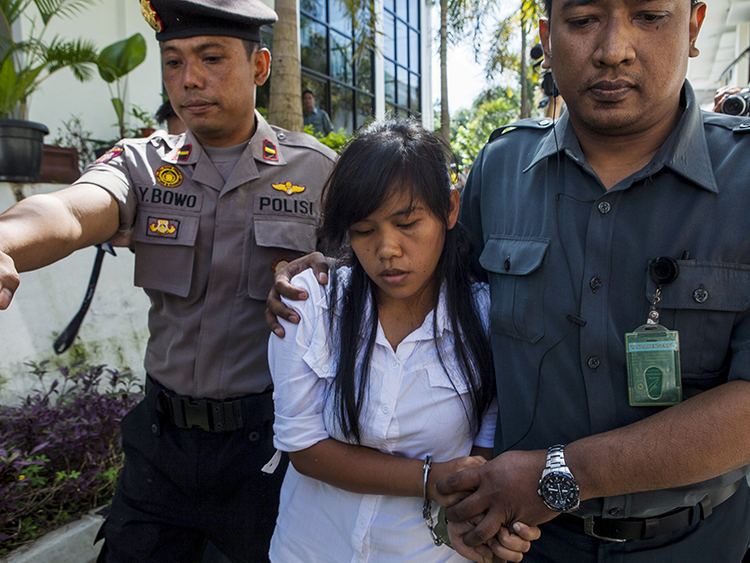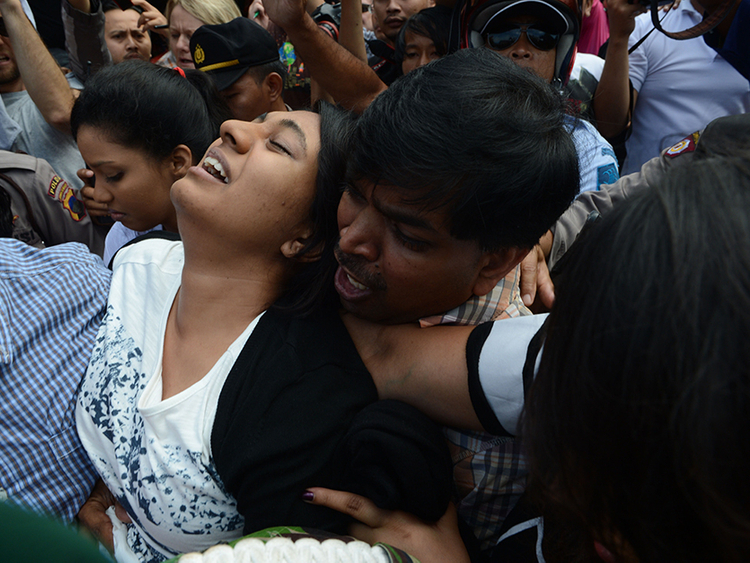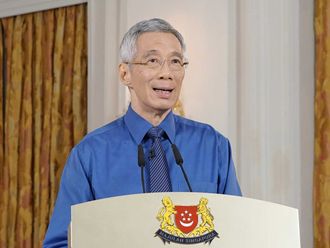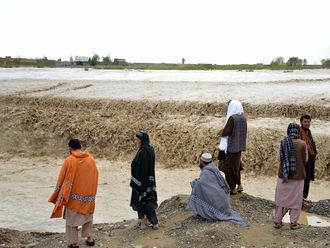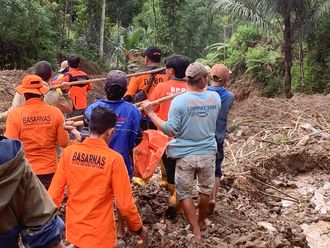CILACAP, Indonesia: Indonesia executed seven foreigners for drug smuggling including two Australians, local media reported, a move that risks intensifying tensions between the Asia-Pacific neighbours with a history of diplomatic rifts.
Myuran Sukumaran and Andrew Chan, the leaders of a gang of nine young Australians arrested for attempting to smuggle heroin out of the Indonesian island of Bali in 2005, were killed by firing squad, the reports said, quoting the attorney general’s office.
The duo were part of a group of eight from countries such as Nigeria and Brazil executed alongside one Indonesian.
The execution of a Filipina drug convict was delayed at the last minute after one of her recruiters surrendered to police in the Philippines, the attorney general's spokesman said on Wednesday.
"The execution of Mary Jane (Veloso) has been postponed because there was a request from the Philippine president related to a perpetrator suspected of human trafficking who surrendered herself in the Philippines," said Tony Spontana, spokesman for the attorney general. "Mary Jane has been asked to testify."
Australia, which opposes the death penalty, made more than 50 appeals for clemency, with Prime Minister Tony Abbott saying that executing the pair would be “beneath” Indonesia and against its best interests. The stand-off is the most serious since 2013 when Abbott refused to apologize amid reports Australia spied on Indonesia’s leaders.
Indonesia’s government said in December it would put to death 64 convicts, including foreigners. President Joko Widodo, known as Jokowi, has allowed the death penalty for drug crimes after a pause under the previous government, and repeatedly said he wouldn’t show mercy for smugglers. His government rejected Australia’s proposal for a prisoner swap.
Australia hasn’t definitively stated if it’ll recall its ambassador to Jakarta or impose other sanctions after the executions. Trade Minister Andrew Robb, who is attempting to sign a free-trade agreement with Indonesia, shelved a delegation to the nation due to the increased tensions.
Australian ties
Two-way merchandise trade between the nations reached A$12.1 billion in the year to June 30, 2014. Australia is a major importer of Indonesia’s petroleum while Indonesia purchases its agricultural products including wheat and livestock. Australian Foreign Minister Julie Bishop said on Saturday she was “deeply and profoundly concerned” at the prospect of the men being executed. French President Francois Hollande warned beforehand of “consequences” if the executions proceeded.
Philippine President Benigno Aquino had spoken with Jokowi on Monday in Malaysia - where the two attended a regional summit - to call for leniency in the case of Veloso, saying she had been duped into being an unwitting carrier of drugs.
After Indonesia executed six people in January for drug trafficking, Brazil and the Netherlands recalled their ambassadors in protest at the death of their citizens.
Bali Nine
Chan and Sukumaran were part of a group now known as the Bali Nine caught carrying 8 kilograms (17 pounds) of heroin at the island’s airport in 2005. Sukumaran turned to painting after his imprisonment and in February was awarded an associate degree in fine arts from Australia’s Curtin University, according to his friend, celebrated war artist Ben Quilty. Chan became an ordained Christian minister, with both men involved in rehabilitation programs for fellow prisoners.
In calling for clemency, Abbott said on Feb. 18 that Indonesia should remember Australia’s aid to the nation in the wake of the 2004 Indian Ocean tsunami. Indonesia’s Foreign Ministry responded that “no one responds well to threats.” Tensions heightened further when Australia summoned the Indonesian ambassador to complain about the treatment of Sukumaran and Chan during their transfer in early March from Bali’s Kerobokan prison to Nusa Kambangan island in Central Java. Photos emerged of an Indonesian police chief smiling as he posed with the grim-faced pair.
Spying Tensions
The last Australian to be executed by a foreign government was Van Tuong Nguyen, who was hanged in Singapore in 2005 for drug smuggling. Australia has abolished the death penalty, with the last execution occurring in 1967.
Ties between Australia and Indonesia were damaged in 2013 after the Australian Broadcasting Corp. reported that documents leaked by U.S. whistle blower Edward Snowden showed Australia tapped the phone of then-president Susilo Bambang Yudhoyono. Indonesia severed defense and people-smuggling pacts and the spat threatened to disrupt trade including cattle shipments from Australia.
Last August the countries agreed to resume intelligence sharing and announced a code of conduct on military cooperation.
Relations previously soured during Sukarno’s rule in the 1960s, and after Australian journalists were killed in the 1970s in what is now East Timor. Indonesia reacted angrily in 1999 when Australia led international military support to restore order in East Timor after it voted for independence from Indonesia.


